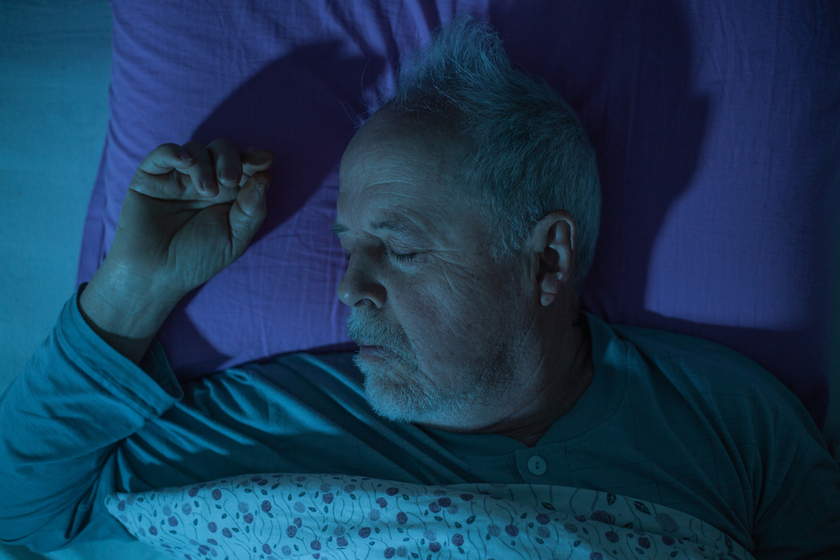
When night falls, it becomes a challenge for those tending to an Alzheimer’s patient. Knowing how to keep an Alzheimer’s patient in bed at night can be tough. The nighttime, due to its quietness and darkness, usually brings with it uncertainty and confusion. Your loved one might get restless, wake up frequently, or roam about, thus putting their safety at risk. Establishing an effective nighttime routine is key to a peaceful sleep, not only for the patient but also for the caregiver.
We understand the unique challenges that come with Alzheimer’s care, notably in-home care in New Jersey. We offer a range of services tailored towards ensuring the best possible care. Our team members are trained specifically in dealing with Alzheimer’s patients. We understand their unique needs and demands.
One of the services we highly prioritize is ensuring optimal nighttime routines for Alzheimer’s patients. Unitizing our expertise in in-home care, we make sure that our well-thought-out strategies on home care for seniors effectively curb nighttime issues. Our focused strategies enhance comfort, promote sleeping hygiene, and ensure safety at night.
Establish a Consistent Bedtime Routine
A consistent bedtime routine signals to the body that it’s time to wind down. For residents with Alzheimer’s in a retirement community, this could mean starting to dim the lights and reduce noise levels in the evening. Engaging in calming activities, such as listening to soft music or reading together, can also ease the transition from day to night. It’s about creating cues that nighttime is for sleeping.
Maintaining regular sleep and wake times forms another crucial part of this routine. By doing this every day, you’re helping set their internal clock to a schedule, which can significantly improve sleep quality. Even on tough days, striving to adhere to these times can pay off in the long run, making it easier for your loved one to stay in bed at night.
Create a Safe and Comfortable Sleep Environment
The sleep environment plays a huge role in how well someone sleeps. For an Alzheimer’s patient, ensuring the bedroom is comfortable, secure, and familiar is paramount. This means checking the room temperature is comfortable—not too hot or cold—and that bedding is soft and inviting. Night lights can also help, offering just enough light to make the room seem safe without being so bright as to disturb sleep.
Safety measures are key. Consider installing bed rails to prevent falls or placing a soft mat beside the bed as an added precaution. These adjustments help create an environment where the resident feels secure enough to stay in bed, reducing the likelihood of nighttime wandering.
Limit Naps and Adjust Daytime Activities
Limiting daytime naps is crucial in managing the sleep patterns of someone with Alzheimer’s. While it’s tempting to let them sleep after a restless night, too much daytime sleep can make it harder for them to sleep at night. Try to keep naps short and early in the day. Engaging them in light activities can also help, providing just enough stimulation to keep them awake without leading to over-tiredness.
Adjusting daytime activities also plays a role. Physical activities, even simple ones like walking together, can help tire out the body in a healthy way, promoting better sleep at night. However, it’s important to balance activity with rest, ensuring they’re not too stimulated before bedtime. A calm, quiet evening can make a significant difference in helping your loved one stay in bed throughout the night.
Encourage Physical Activity During the Day
Regular physical activity is essential for individuals with Alzheimer’s, especially when the goal is to promote restful sleep at night. Exercise can help regulate sleep cycles and improve the quality of sleep they receive. A walk in the sunshine, simple stretching exercises, or light gardening can offer both physical benefits and the added advantage of routine. Encouraging these activities during the day can help use up excess energy, making it easier for them to settle down in the evening.
Getting the right amount of activity doesn’t mean being over-active; it’s about finding the right balance. Too much exertion can also lead to discomfort, which can be counterproductive. The key is to offer gentle, regular opportunities for movement that can be adjusted depending on their energy levels and general health. This sensible approach to daytime activity is foundational in helping them feel naturally tired and prepared to stay in bed when night falls.
Address Pain or Discomfort
Pain or discomfort can often be a significant reason why a person with Alzheimer’s may have trouble staying in bed at night. Effective management of any physical aches they might be experiencing is necessary to encourage uninterrupted sleep. Simple strategies include ensuring they have a supportive mattress and pillows that provide proper support, checking regularly for any signs of infection or illness that might cause discomfort, and discussing any persistent pain with a healthcare provider for appropriate remedies.
Being proactive about any potential sources of discomfort also includes monitoring for side effects of medications that may interfere with sleep. Some drugs may cause agitation or restlessness. In such cases, a discussion with the individual’s healthcare providers could lead to adjustments that help alleviate nighttime awakenings. Comfort is key, and when the body feels at ease, the chances of a peaceful night’s sleep are greatly improved.
Beginning a Journey of Trust
Trusting us with the care of your loved ones is the first step towards peace of mind. Under Our Home Care Agency’s expert care, you can expect your loved one’s nights and overall quality of life to progressively improve. Reach out to us today; let’s ensure your loved ones have peaceful nights together.
The level of care your loved one receive depends on their needs. We have the healthcare pros to make that perfect fit and keep them safe & content right at home!
We offer:
- Daily Living Assistance; including things like bathing & dressing
- Transportation Services
- Housekeeping
- Companionship Services; including recreation & conversation
- AND MORE!
Get in touch with us! We’ll be happy to set up an appointment to assess your situation and offer the services you need for your loved one to live their best life!
We offer:
- Daily Living Assistance; including things like bathing & dressing
- Transportation Services
- Housekeeping
- Companionship Services; including recreation & conversation
- AND MORE!





